
Find Help
More Items From Ergsy search
-

Can chiropractors help with headaches?
Relevance: 100%
-

What does a Chiropractor do?
Relevance: 90%
-

Do chiropractors only treat the spine?
Relevance: 88%
-

Do chiropractors prescribe medications?
Relevance: 85%
-

Do I need a referral to see a chiropractor?
Relevance: 79%
-

What qualifications does a chiropractor need?
Relevance: 73%
-

How do chiropractors treat back pain?
Relevance: 71%
-
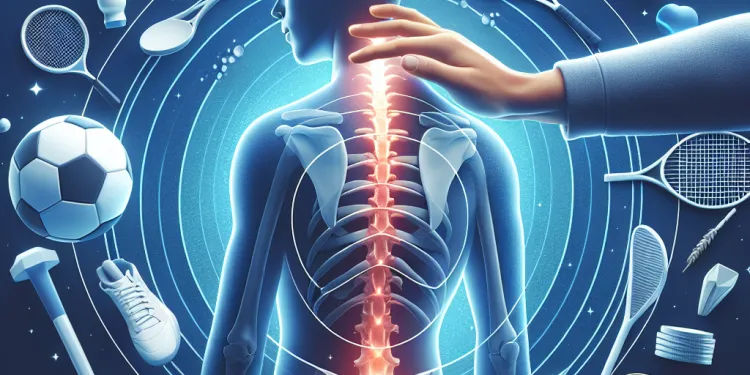
Can chiropractors help with sports injuries?
Relevance: 71%
-

How often should I see a chiropractor?
Relevance: 70%
-

What are headaches?
Relevance: 69%
-
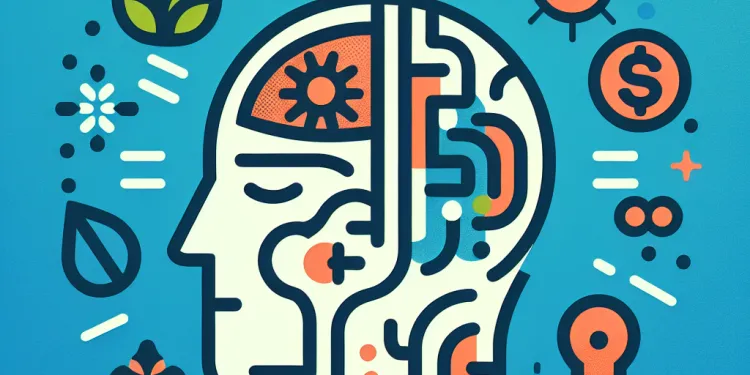
Is headache a symptom of a concussion?
Relevance: 64%
-

What are migraines and cluster headaches?
Relevance: 60%
-

Are headaches a common side effect of weight loss medications?
Relevance: 54%
-
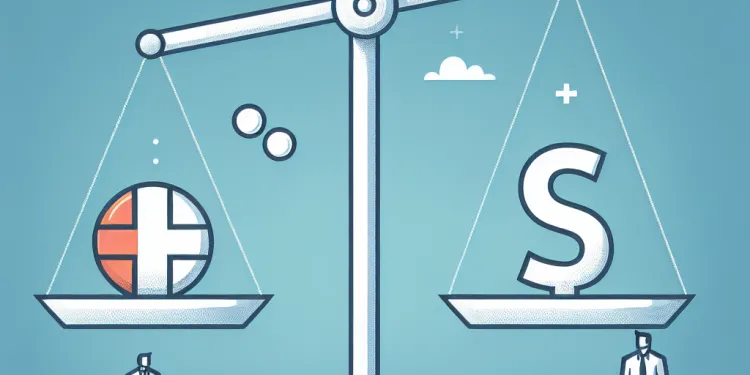
Which one is better for headaches: Aspirin or Paracetamol?
Relevance: 52%
-
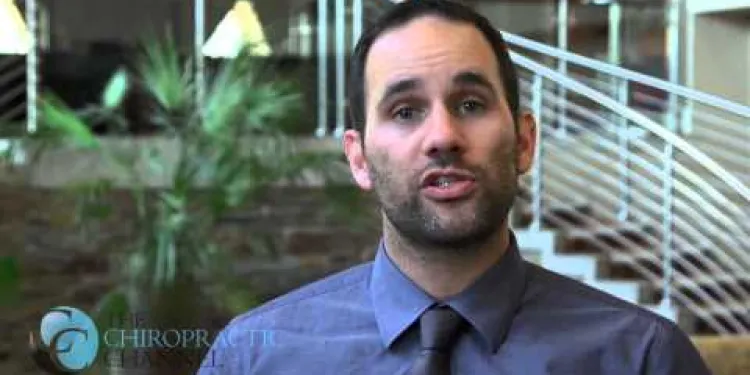
Chiropractic Care on the NHS
Relevance: 49%
-

What is a chiropractic adjustment?
Relevance: 49%
-

Are chiropractic treatments safe?
Relevance: 44%
-
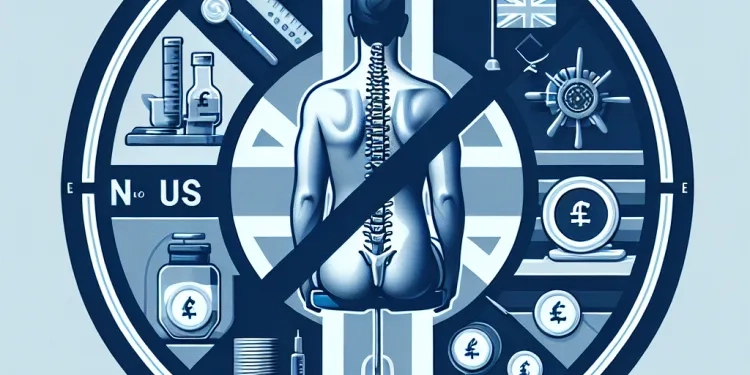
Are chiropractic treatments painful?
Relevance: 41%
-

How long does a chiropractic session usually take?
Relevance: 35%
-

Can pregnant women see a chiropractor?
Relevance: 32%
-

Can children benefit from chiropractic care?
Relevance: 31%
-
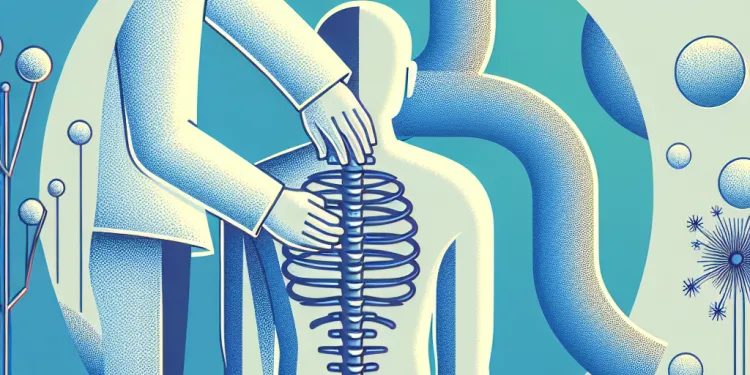
What is the popping sound during a chiropractic adjustment?
Relevance: 28%
-

Can chiropractic care help with arthritis?
Relevance: 28%
-

What should I expect during my first chiropractic visit?
Relevance: 20%
-

Is chiropractic care covered by insurance?
Relevance: 19%
-

Migraine | NHS
Relevance: 19%
-

What are the common side effects of spinal anaesthesia?
Relevance: 19%
-

Migraine
Relevance: 18%
-

What are common symptoms of meningitis?
Relevance: 18%
-

Can Botox be used for migraines?
Relevance: 17%
-

What are the symptoms of whiplash?
Relevance: 17%
-

What are the symptoms of West Nile Virus?
Relevance: 17%
-

What are common symptoms of sleep apnea?
Relevance: 16%
-

What are the symptoms of sunburn?
Relevance: 16%
-

What are the symptoms of Zika virus?
Relevance: 16%
-

What is a lumbar puncture?
Relevance: 16%
-

What are common symptoms of Lyme disease?
Relevance: 15%
-

What symptoms should I watch for if I suspect a mosquito-borne disease?
Relevance: 15%
-

What are common side effects of Baxdrostat?
Relevance: 15%
-
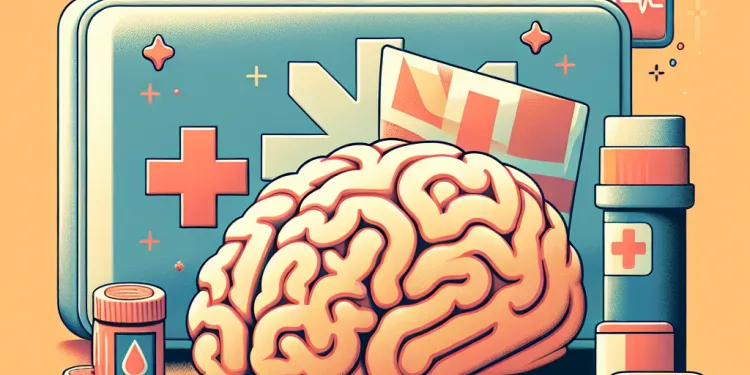
What immediate steps should be taken if someone has a concussion?
Relevance: 15%
Introduction
Headaches are a common ailment affecting many individuals in the UK. They can range from mild discomfort to debilitating pain, impacting daily life and productivity. While over-the-counter medication is often the go-to solution, many are seeking alternative treatments such as chiropractic care. This article explores whether chiropractors can help alleviate headaches, providing insights for those looking for non-pharmaceutical relief.
Understanding Chiropractic Care
Chiropractic care focuses on diagnosing and treating musculoskeletal disorders, particularly those related to the spine. Chiropractors use hands-on spinal manipulation and other alternative treatments to ensure proper alignment of the body's musculoskeletal structure. This can facilitate the body’s ability to heal itself without surgery or medication. The manipulation can help restore mobility to joints restricted by tissue injury caused by a traumatic event or repetitive stress.
Types of Headaches
Before determining if chiropractic care is suitable, it is important to understand the types of headaches one might experience. The most common types include tension headaches, migraines, and cervicogenic headaches. Tension headaches are often characterized by a dull, aching sensation around the head. Migraines, on the other hand, are more intense and can be accompanied by nausea and light sensitivity. Cervicogenic headaches are secondary headaches caused by neck problems.
Chiropractic Treatment for Headaches
For those suffering from headaches, especially tension-type headaches and those originating from the neck (cervicogenic), chiropractic treatment may provide relief. Chiropractors may perform spinal adjustments or manipulation to improve spinal function and alleviate stress on the system. They may also recommend nutritional changes, posture improvement, and lifestyle modifications to prevent headache triggers and improve overall well-being.
Research suggests that chiropractic care can be effective in reducing the frequency and severity of headaches. The treatment focuses on addressing the underlying cause, rather than just alleviating symptoms. For example, poor posture and muscle tension are common causes of tension headaches, which chiropractic care can help address.
Benefits and Considerations
Chiropractic care offers a non-invasive, drug-free approach to managing headaches, appealing to those who prefer natural treatments. It can also provide holistic benefits, potentially addressing multiple aspects of well-being in a single treatment. However, it is not suitable for everyone. Individuals with specific medical conditions or those who have previously experienced negative reactions to chiropractic care should consult their healthcare provider before seeking treatment.
Conclusion
While more research is needed to fully understand the extent of chiropractic care's effectiveness on various headache types, it has shown promise, especially for those suffering from tension and cervicogenic headaches. Patients in the UK interested in this alternative treatment are encouraged to consult with a qualified chiropractor to discuss their symptoms and explore whether this approach might be beneficial for their individual needs.
Introduction
Headaches are very common and affect many people in the UK. They can be a little annoying or really painful, which can make it hard to do daily activities. People often take medicine to feel better, but some are looking for other ways to help, like visiting a chiropractor. This article talks about whether chiropractors can help with headaches without using medicine.
Understanding Chiropractic Care
Chiropractic care is a way of helping people with problems in their muscles and bones, especially the spine. Chiropractors use hands to move and adjust the spine. This helps the body fix itself without needing surgery or medicine. Moving the spine can help joints that are stiff because of an injury or repeated use.
Types of Headaches
Before seeing if a chiropractor can help, it’s good to know what kind of headache you have. There are different types of headaches like tension headaches, migraines, and cervicogenic headaches. Tension headaches feel like a dull ache around your head. Migraines are stronger headaches and can make people feel sick and sensitive to light. Cervicogenic headaches come from neck problems.
Chiropractic Treatment for Headaches
If you have headaches, especially tension headaches or headaches from neck problems, chiropractors might help. They adjust the spine to help it work better and reduce stress. Chiropractors might also suggest eating healthy, sitting up straight, and making changes in your daily life to stop headaches from happening.
Studies show that chiropractic care can help make headaches happen less often and be less painful. The treatment tries to fix the reason for the headache, not just the pain. For example, bad posture and tight muscles can cause tension headaches, which chiropractic care can help fix.
Benefits and Considerations
Chiropractic care is natural and doesn’t use drugs. Some people like it because it’s gentle. It can also help with other things in the body, not just headaches. But it’s not right for everyone. People with certain health issues or bad reactions to chiropractic care before should talk to a doctor first.
Conclusion
More studies are needed to know exactly how well chiropractic care works for headaches, but it seems promising, especially for tension and neck-related headaches. People in the UK interested in this kind of treatment should talk to a trained chiropractor to see if it might help them.
Frequently Asked Questions
Useful Links
Have you found an error, or do you have a link or some information you would like to share? Please let us know using the form below.
-->
This website offers general information and is not a substitute for professional advice.
Always seek guidance from qualified professionals.
If you have any medical concerns or need urgent help, contact a healthcare professional or emergency services immediately.
Some of this content was generated with AI assistance. We’ve done our best to keep it accurate, helpful, and human-friendly.
- Ergsy carfully checks the information in the videos we provide here.
- Videos shown by Youtube after a video has completed, have NOT been reviewed by ERGSY.
- To view, click the arrow in centre of video.
- Most of the videos you find here will have subtitles and/or closed captions available.
- You may need to turn these on, and choose your preferred language.
- Go to the video you'd like to watch.
- If closed captions (CC) are available, settings will be visible on the bottom right of the video player.
- To turn on Captions, click settings .
- To turn off Captions, click settings again.
More Items From Ergsy search
-

Can chiropractors help with headaches?
Relevance: 100%
-

What does a Chiropractor do?
Relevance: 90%
-

Do chiropractors only treat the spine?
Relevance: 88%
-

Do chiropractors prescribe medications?
Relevance: 85%
-

Do I need a referral to see a chiropractor?
Relevance: 79%
-

What qualifications does a chiropractor need?
Relevance: 73%
-

How do chiropractors treat back pain?
Relevance: 71%
-

Can chiropractors help with sports injuries?
Relevance: 71%
-

How often should I see a chiropractor?
Relevance: 70%
-

What are headaches?
Relevance: 69%
-

Is headache a symptom of a concussion?
Relevance: 64%
-

What are migraines and cluster headaches?
Relevance: 60%
-

Are headaches a common side effect of weight loss medications?
Relevance: 54%
-

Which one is better for headaches: Aspirin or Paracetamol?
Relevance: 52%
-

Chiropractic Care on the NHS
Relevance: 49%
-

What is a chiropractic adjustment?
Relevance: 49%
-

Are chiropractic treatments safe?
Relevance: 44%
-

Are chiropractic treatments painful?
Relevance: 41%
-

How long does a chiropractic session usually take?
Relevance: 35%
-

Can pregnant women see a chiropractor?
Relevance: 32%
-

Can children benefit from chiropractic care?
Relevance: 31%
-

What is the popping sound during a chiropractic adjustment?
Relevance: 28%
-

Can chiropractic care help with arthritis?
Relevance: 28%
-

What should I expect during my first chiropractic visit?
Relevance: 20%
-

Is chiropractic care covered by insurance?
Relevance: 19%
-

Migraine | NHS
Relevance: 19%
-

What are the common side effects of spinal anaesthesia?
Relevance: 19%
-

Migraine
Relevance: 18%
-

What are common symptoms of meningitis?
Relevance: 18%
-

Can Botox be used for migraines?
Relevance: 17%
-

What are the symptoms of whiplash?
Relevance: 17%
-

What are the symptoms of West Nile Virus?
Relevance: 17%
-

What are common symptoms of sleep apnea?
Relevance: 16%
-

What are the symptoms of sunburn?
Relevance: 16%
-

What are the symptoms of Zika virus?
Relevance: 16%
-

What is a lumbar puncture?
Relevance: 16%
-

What are common symptoms of Lyme disease?
Relevance: 15%
-

What symptoms should I watch for if I suspect a mosquito-borne disease?
Relevance: 15%
-

What are common side effects of Baxdrostat?
Relevance: 15%
-

What immediate steps should be taken if someone has a concussion?
Relevance: 15%


